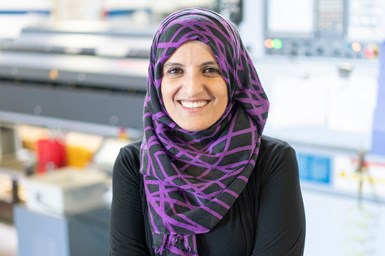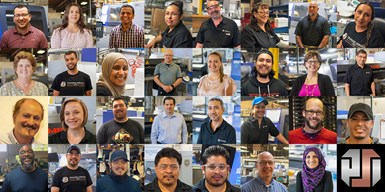The ROI of Diversity and Inclusion for Machine Shops
Successful diversity and inclusion efforts need mutual respect — dishonest efforts will reflect poorly on your company while success will attract talent.
Share






Aneesa Muthana, CEO, president and owner of Pioneer Service Inc.
First, a caveat: The benefits of diversity and inclusion (D&I) aren't about politics. Most manufacturers care far more about making parts that matter than about politics (as they should), but misconceptions about D&I persist and sometimes obstruct the most well-intentioned efforts. Any successful D&I initiative must begin with a definition of the term.
To me, D&I is not:
- Checking off a box or fulfilling a political agenda — don’t be the business that passes around the D&I form and calls it a day.
- Giving someone license to “play the victim” — fate doesn’t tally injustices; it rewards hard work and persistence.
- Having a “token” board member or trophy employee — nobody wants to work somewhere where people can’t stop talking about your differences.
D&I isn’t adopting an “us vs. them” mindset. Leave cliches at the curb. Inclusion is all-encompassing — designating one group as victims and another as villains only stokes resentment and passes up a chance for cultivating empathy.
Any D&I effort is dead in the water without empathy. Progress only happens when everyone buys into the effort. Leaders alone aren’t nearly enough. You can’t berate or shame your team into accepting change and other people’s differences. You can’t ask for empathy without showing it yourself. Meaningful change almost always takes time and patience.
Diversity means different things to different people. In the workplace, it means embracing and sustaining a policy of hiring people from a variety of backgrounds, whether it’s ethnicity, religion, lifestyle, education or some other variable. Inclusion refers to how a company treats a diverse workforce after they’ve hired them — it’s the follow-through.
An inclusive company makes people feel respected and welcome whether they represent a minority or a majority in your business. This also means making reasonable accommodations for their needs, and taking authentic steps to understand them if unfamiliar. Respect is essential — agreeing with all their choices and cultural elements is not.
Aside from being the fair and right thing to do, D&I is critical for growth. It’s no secret that manufacturing has a skilled-labor crisis. Accepting diversity means casting a wider net and promoting the industry to those who haven’t traditionally pursued it. If businesses sustain efforts to build a diverse team from the shop floor to management, their visibility resonates with others and cultivates an inclusive workplace. In these workplaces, teams communicate better and operate more efficiently.
As a result, it is easier to find and hire quality people who are looking for a respectful and productive work experience. For example, I was recently interviewing an engineer and recent graduate who had already received a job offer from a competitor. He was willing to take a necessary 10% pay cut to work for our company, saying he was more comfortable with us than with them. Never mind that he was Caucasian — he noticed an inclusive culture and valued it more than the extra salary!
A second example involved a promising 19-year-old apprentice. Only a few minutes into the interview, it was clear that he knew more about our company than some of my veteran employees. It turned out that his knowledge came from his mother, who’d researched our company and advised him to take any offer.
A history of D&I will also strengthen your supply chain. Our company, Pioneer Service, has fewer than 50 employees and normally wouldn’t immediately draw the eye of big-name suppliers. However, the same reputation that sells us to job candidates also attracts these big players. They welcome our reputation, and are happy to feature our partnership in their publications, grow our brand and go the extra mile for us.
So, there you have it: Two non-political reasons to commit to D&I. Sincerity pays dividends. A healthy pride in your diverse teams shines like a beacon for potential talent and partners. Anything less turns your company into a box-checker and everyone, inside and out, will see right through it.
About the Author
Aneesa Muthana
Co-owner, CEO and president of Pioneer Service, a contract manufacturer specializing in Swiss precision parts, CNC turned parts and centerless grinding services in Addison, Ill. Email amuthana@pioneerserviceinc.com or visit pioneerserviceinc.com.
Read Next
Registration Now Open for the Precision Machining Technology Show (PMTS) 2025
The precision machining industry’s premier event returns to Cleveland, OH, April 1-3.
Read MoreSetting Up the Building Blocks for a Digital Factory
Woodward Inc. spent over a year developing an API to connect machines to its digital factory. Caron Engineering’s MiConnect has cut most of this process while also granting the shop greater access to machine information.
Read MoreBuilding Out a Foundation for Student Machinists
Autodesk and Haas have teamed up to produce an introductory course for students that covers the basics of CAD, CAM and CNC while providing them with a portfolio part.
Read More



























